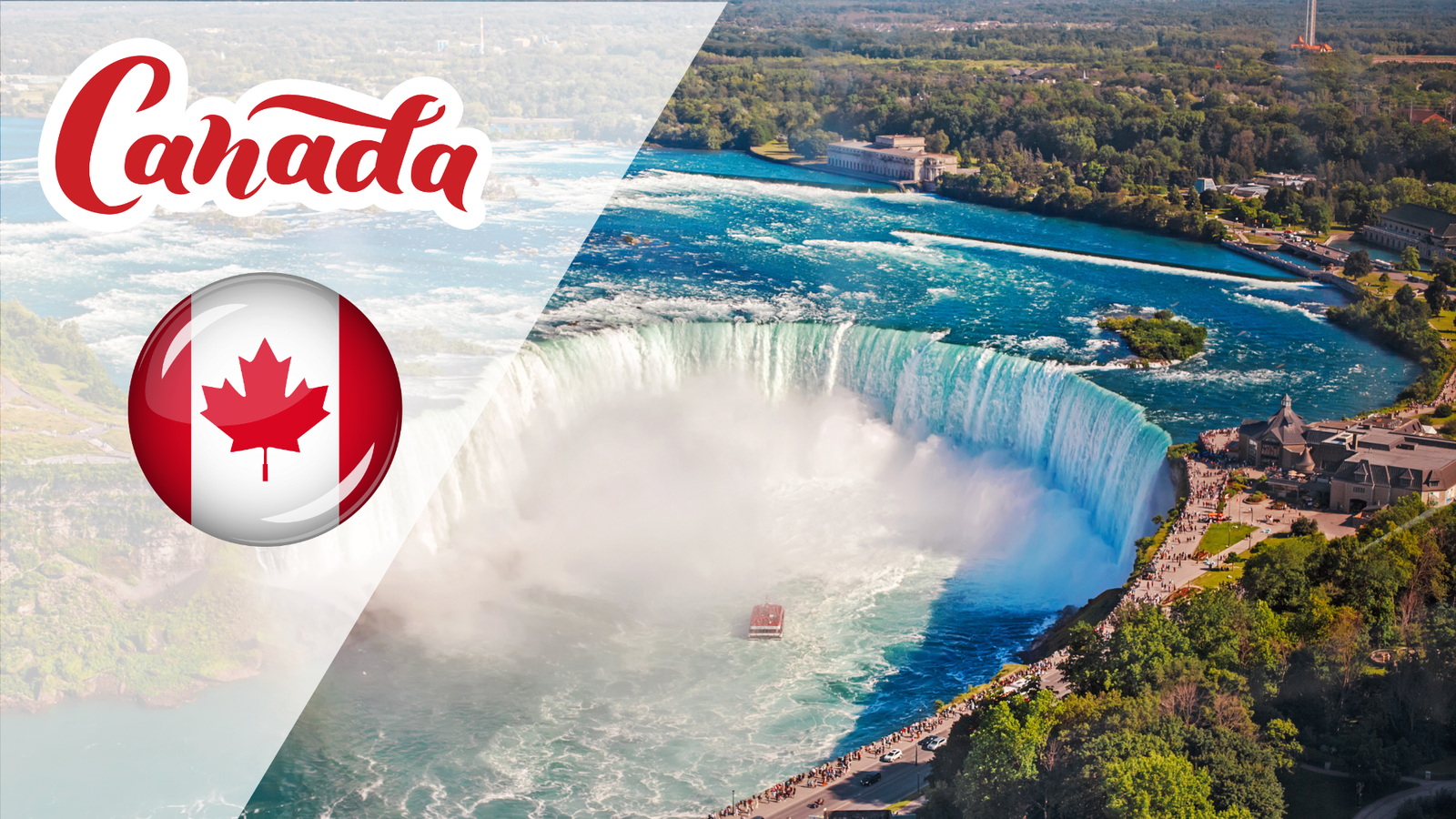
Why Canada?
Canada offers high-quality education, a safe and multicultural environment, and strong post-graduation opportunities. For Bangladeshi students, studying in Canada means access to world-class universities, part-time work rights, and a clear path to Permanent Residency after graduation.
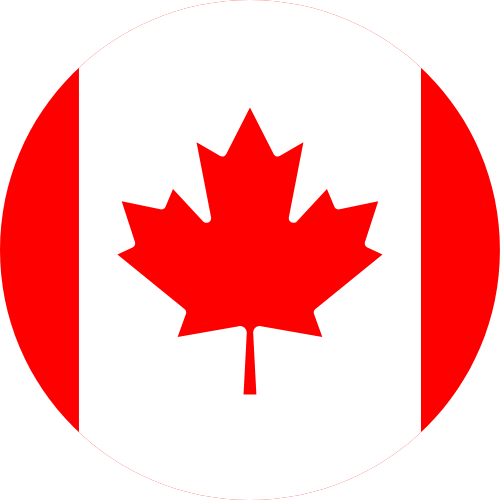
- Study in
Canada
Explore Study Programs
Schooling
Schooling Options for Bangladeshi Kids in Canada
Public (Government-Funded) Schools
Open to international students, but tuition fees apply.
Offer high-quality education with modern teaching methods and facilities.
Education is divided into elementary (Grades 1–8) and secondary (Grades 9–12).
Emphasize academic excellence, extracurricular activities, and personal development.
Often more affordable than private or international schools.
Private Schools
Operated by independent boards, religious organizations (e.g., Catholic, Islamic, Christian), or educational groups.
Tend to offer smaller class sizes, enhanced facilities, and more individualized attention.
Can follow provincial curricula or international programs like the IB (International Baccalaureate).
Higher tuition fees apply for international students.
Some offer boarding facilities for international students.
Boarding Schools
Primarily private secondary schools offering on-campus accommodation, meals, and supervision.
Ideal for older children (typically Grade 7 and above) who are prepared to live independently.
Provide strong academic programs, extracurriculars, and preparation for top universities.
International Schools / Specialized Programs
Some schools offer international curricula such as the IB Diploma Program or Advanced Placement (AP) courses.
Specialized streams available for gifted students, students with disabilities, or those interested in areas like STEM or the arts.
English or French Language Preparation Programs
Non-native English or French speakers may be required to take ESL/FSL (English/French as a Second Language) support or attend dedicated language schools before joining regular classes.
Many schools integrate language support alongside mainstream classes.
Study Permit Pathway for Schooling
Student Permit (Visa)
Required for school-aged international students planning to study in Canada for more than six months.
Must be accepted into a Designated Learning Institution (DLI) – this includes public and private elementary and secondary schools approved by the Canadian government.
Key Points
Eligibility:
Must provide a Letter of Acceptance from a DLI (school).
Parents/guardians must show sufficient funds to cover tuition, living costs, and travel expenses.
A Custodianship Declaration is required for minors under 18 who are not accompanied by a parent.
Duration:
Typically granted for the duration of the school program (e.g., up to Grade 12).
Renewable if continuing to post-secondary education.
Custodianship/Guardian Option:
For children under 18 (or under 19 in some provinces), a Canadian citizen or permanent resident must be appointed as a custodian.
Some parents choose to accompany their children on Visitor Visas or apply for Temporary Resident Visas (TRVs), but there is no dedicated guardian visa like in Australia.
Conditions:
Students must maintain full-time enrollment, attend school regularly, and comply with immigration regulations.
Working is not allowed at the school level unless the student later transitions to post-secondary education.
Diploma Courses (Job-Ready Programs)
Ideal for students seeking hands-on skills and quicker entry into the workforce.
Diploma in Practical Nursing
Diploma in Early Childhood Education
Diploma in Hospitality Management
Diploma in Information Technology
Diploma in Automotive Service Technician
Diploma in Construction Management
Diploma in Business Administration
These programs typically last 1 to 2 years and provide practical training that aligns with in-demand occupations on Canada’s skilled worker lists.
Undergraduate Degrees (Bachelor Programs)
Perfect for students looking for strong academic foundations and career development opportunities.
Bachelor of Nursing
Bachelor of Computer Science / Information Technology
Bachelor of Engineering (Civil, Mechanical, Electrical, etc.)
Bachelor of Business Administration / Accounting / Finance
Bachelor of Education (Elementary, Secondary)
Bachelor of Social Work
Bachelor of Environmental Science
Many of these programs have strong job prospects and can serve as pathways toward Canadian permanent residency through skilled immigration programs.
Postgraduate Degrees (Master’s Programs)
Designed for students who want to specialize or transition into high-demand fields.
Master of Information Technology
Master of Data Science / Cybersecurity
Master of Nursing / Public Health
Master of Engineering Management
Master of Professional Accounting (MPA)
Master of Social Work
Master of Education
Master of Business Administration (MBA) with specializations in HR, Project Management, International Business
Postgraduate programs in Canada often enhance your eligibility for skilled immigration pathways and improve job prospects in competitive sectors.
PhD / Doctoral Studies (Research Programs)
Ideal for students pursuing academic, research, or advanced industry careers.
PhD in Information Technology
PhD in Engineering (Civil, Mechanical, Electrical, etc.)
PhD in Biomedical or Health Sciences
PhD in Business / Economics / Management
PhD in Environmental Science / Sustainability
PhD in Education / Social Sciences
Why consider a PhD in Canada?
Competitive funding opportunities through university scholarships, research assistantships, and government grants.
Access to cutting-edge research facilities and experienced supervisors.
Eligibility for Post-Graduation Work Permit (PGWP), facilitating work experience in Canada after studies.
Strong prospects for academic careers, research positions, and industry leadership roles.
Pathways to Canadian permanent residency for PhD graduates, especially in priority fields.
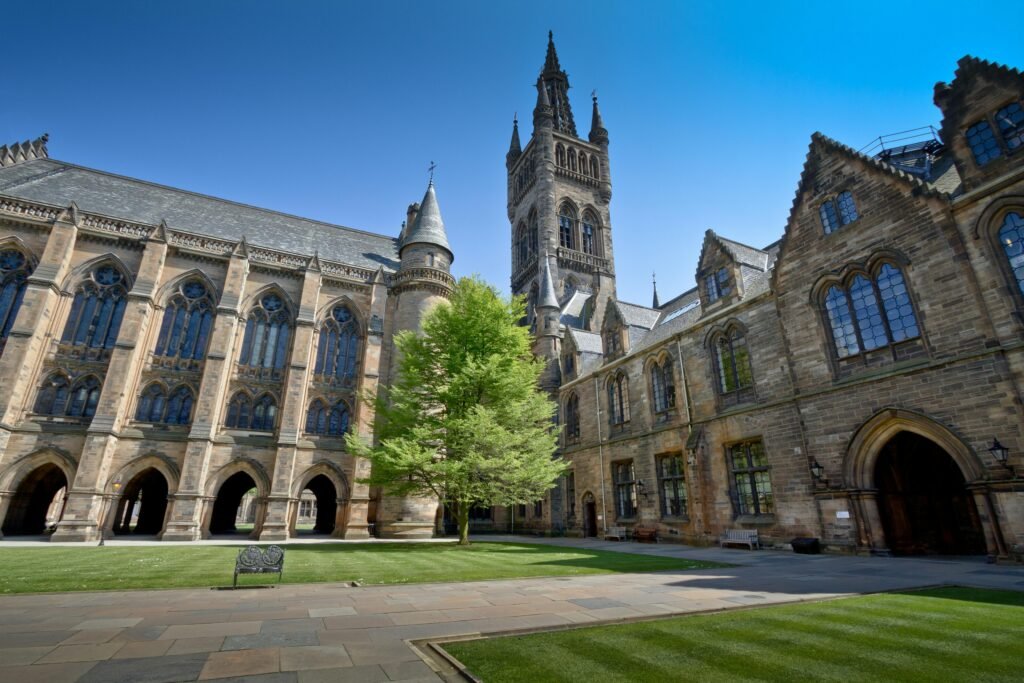

- Study in
Canada
Step-by-Step Guide
Step-1: Explore universities and courses
You can begin your journey by exploring top-ranked Canadian universities and a wide variety of academic programs across provinces. It’s essential to choose courses that match your academic background and long-term career goals. At Edex Global Nexus, we provide expert guidance to help you shortlist the most suitable programs based on your interests, labor market trends in Canada, and potential pathways to permanent residency (PR) after graduation.
Step-2: Check eligibility
To study in Canada as an international student, you must meet specific academic and English (or French) language requirements depending on your level of study—Diploma, Undergraduate, or Postgraduate. Each institution may have slightly different criteria, so it’s essential to review the specific admission requirements of your chosen program before applying.
Eligibility Checklist:
Academic qualifications equivalent to Canadian high school (Grade 12), Bachelor’s, or Master’s degree—depending on the program level
English or French language proficiency (e.g., IELTS, TOEFL, PTE, or TEF for French programs)
Minimum GPA or percentage as required by the institution or program
Course-specific prerequisites, such as math, biology, or chemistry for certain fields
Valid passport and personal ID documents
Work experience (if required for certain postgraduate programs or MBA)
Portfolio or audition (for creative arts, design, or performance-based programs)
Proof of funds to show you can afford tuition and living expenses (required for the Study Permit)
Letter of Acceptance (LOA) from a Designated Learning Institution (DLI)
Statement of Purpose (SOP) or study plan for visa and admission purposes
Step-3: Available scholarships
Canada offers a wide range of scholarships for international students, including competitive opportunities for Bangladeshi applicants. These scholarships can help reduce tuition fees and living expenses, making your study experience more affordable and accessible.
Popular Scholarships:
Vanier Canada Graduate Scholarships
Offered to doctoral students who demonstrate academic excellence, research potential, and leadership. Valued at CAD 50,000 per year for three years.
Lester B. Pearson International Scholarship
Fully funded undergraduate scholarship offered by the University of Toronto. Covers tuition, books, incidental fees, and full residence support for four years.
Canada-ASEAN Scholarships and Educational Exchanges for Development (SEED)
Open to students from ASEAN countries, including Bangladesh, for short-term study or research in Canadian institutions.
Canadian Commonwealth Scholarship Program
Funded by the Canadian government for students from Commonwealth countries pursuing master’s or doctoral studies in Canada.
University-Specific Scholarships
Many Canadian universities offer merit-based scholarships and entrance awards for international students.
Examples:
University of British Columbia International Scholars Program
York University Global Leader of Tomorrow Award
University of Waterloo International Master’s and Doctoral Awards
McGill Entrance Scholarships
Eligibility Highlights:
Strong academic performance (GPA is a key factor)
English or French language proficiency (IELTS/TOEFL)
Some scholarships require a personal statement, research proposal, or demonstrated leadership
Acceptance or application to a participating Canadian institution
Step-4: Recieve and accept offer
- Understand your offer letter – Learn the difference between conditional and unconditional offers, and what steps you need to take to meet the university’s requirements.
- Fulfill any conditions efficiently – Submit academic transcripts, English test scores, or other pending documents promptly to secure an unconditional offer.
- Get assistance with tuition deposit and acceptance – We guide you through the payment process and help you confirm your spot at the institution, which is necessary for your visa application (Letter of Acceptance – LOA).
Step-5: Get Health Insurance
- Guidance on selecting suitable health insurance – We help you understand the types of health insurance required for international students in Canada, including provincial and private coverage.
- Assistance with comparing insurance plans – Get support in evaluating different insurance providers based on cost, coverage, and university requirements.
- Ensure timely enrollment and compliance – We make sure your health insurance is properly arranged and documented to meet visa and institutional regulations.
Step-6: Apply for student visa
- Complete the visa application with expert support – We guide you through every step of the Canadian Study Permit process to ensure accuracy and compliance.
- Prepare and review all required documents – Assistance with compiling and reviewing key documents such as your Letter of Acceptance (LOA), Statement of Purpose (SOP), financial proof, and more.
- Mock interviews and visa readiness checks – Get fully prepared with mock interviews and document checks to strengthen your application and avoid delays or refusals.
Step-7: Financial and travel preparation
Checklist for financial documents – We provide a detailed list of required documents such as bank statements, sponsorship letters, and proof of funds to ensure your study permit application is complete.
Tips for affordable flight bookings – Receive guidance on finding cost-effective flights and choosing the best travel dates to save money.
Help with accommodation and airport pickup – Support in arranging suitable student housing and airport pickup services to make your arrival hassle-free.
Step-8: Arrive and settle in Canada
- Pre-departure briefing and student handbook – Receive practical guidance and a comprehensive handbook to prepare you thoroughly before your journey to Canada.
- Help with SIM card, bank account & SIN – We assist you in setting up key essentials upon arrival, including a Canadian mobile number, bank account, and Social Insurance Number (SIN).
- Orientation and ongoing support – Participate in orientation sessions and connect with a support network to help you settle comfortably and confidently in your new environment.


- Study in
Canada
Explore Our Partner Universities
1. Adler University
2. Alexander College
3. Algonquin College
4. Assiniboine Community College, Brandon, Manitoba
5. Bow Valley College, Calgary, Alberta
6. British Columbia Institute of Technology, Burnaby, British Columbia
7. Cambrian College
8. Canada College – King Campus
9. Canada College Royal Campus
10. Canadian College of Technology and Business
11. Canadian Imperial College Edmonton
12. Canadian Imperial College Online
13. Canadore College
14. Canadore College – Stanford Brampton Campus
15. Coastal College of British Columbia
16. Coastal College of British Columbia Online
17. College of New Caledonia, Prince George Campus
18. Confederation College – Thunder Bay Campus
19. Coquitlam College
20. Douglas College, Vancouver, British Columbia
21. Durham College
22. EduSmart Education Service Inc
23. Epic College of Technology
24. Eton College – MSM Unify
25. Fairleigh Dickinson University
26. Fanshawe College
27. Fleming College (Peterborough)
28. Fleming College Toronto
29. George Brown College
30. Holmes Institute Canada
31. Justice Institute of British Columbia (JIBC)
32. Kingswood Educational Group Ltd. dba Kingswood Study Camps
33. Kwantlen Polytechnic University
34. Lakehead University, Thunder Bay, Ontario
35. Lambton College
36. Langara College
37. LaSalle College Montreal
38. LaSalle College Vancouver
39. Le Cordon Bleu Ottawa
40. Loyalist College – Port Hope
41. Loyalist College Main Campus
42. Manitoba Institute of Trades and technology
43. Maple International College
44. Medicine Hat College
45. Memorial University of Newfoundland, Grenfell Campus
46. Memorial University of Newfoundland, St. John Campus
47. Multihexa College, Saguenay Campus – MSM Unify
48. Multihexa College, Toronto Campus – MSM Unify
49. Multihexa College, Vancouver Campus – MSM Unify
50. Niagara College Toronto
51. Niagara University Ontario
52. Nipissing University, North Bay
53. NorQuest College Edmonton
54. NorQuest College Wetaskiwin
55. Northern College at Pures – Toronto
56. Northern College Timmins
57. Okanagan College
58. Okanagan College Online
59. Portage College – CIOT Campus
60. Queen Margaret’s School
61. Queen’s Elite Academy
62. Saskatchewan Polytechnic Saskatoon
63. Sault College
64. Seneca College
65. Sheridan College.
66. Simon Fraser University through Fraser International College
67. Southern Alberta Institute of Technology, Calgary
68. Sprott Shaw Abbotsford College
69. Sprott Shaw Chilliwack College
70. Sprott Shaw East Vancouver College
71. Sprott Shaw Kamloops College
72. Sprott Shaw Kelowna College
73. Sprott Shaw Language College – Toronto Campus
74. Sprott Shaw Language College – Vancouver Campus
75. Sprott Shaw Language College – Victoria Campus
76. Sprott Shaw Maple Ridge College
77. Sprott Shaw Nanaimo College
78. Sprott Shaw New Westminster College
79. Sprott Shaw Osoyoos College
80. Sprott Shaw Penticton College
81. Sprott Shaw Richmond College
82. Sprott Shaw School of Trades
83. Sprott Shaw Surrey College
84. Sprott Shaw Vancouver Downtown College
85. Sprott Shaw Vancouver Seymour College
86. Sprott Shaw Victoria
87. Sprott Shaw Victoria Main
88. Tamwood International College Toronto – Tamwood Language Centre
89. Tamwood International College Toronto Campus
90. Tamwood International College Whistler
91. Tamwood Language Centre- Vancouver Campus
92. Tamwood Language Centre Whistler Campus
93. Taylor Pro College – MSM Unify
94. The Language Gallery Canada
95. Toronto Metropolitan University through Toronto Metropolitan International College – TMUIC
96. Toronto School of Management
97. Trebas Institute Montreal
98. Trent University Durham Campus
99. Trent University Peterborough Campus
100. Trinity Language Centre Langley
101. Trinity Language Centre Richmond
102. University Canada West, Canada
103. University of Calgary, Calgary
104. University of Lethbridge, Lethbridge
105. University of Manitoba
106. University of New Brunswick, Fredericton, New Brunswick
107. University of Niagara Falls
108. University of Regina
109. University of the Fraser Valley, Canada
110. University of Victoria
111. University of Waterloo
112. University of Windsor
113. University of Windsor – ILAC
114. University of Winnipeg
115. Vancouver Premier College of Arts and Sciences – Richmond Campus
116. Vancouver Premier College of Arts and Sciences Canada
117. Vancouver Premier College of Business and Management – Vancouver Campus
118. Vancouver Premier College of Business and Management, Richmond
119. Vancouver Premier College of Hotel Management
120. Western Community College
121. Cape Breton University
122. Great Plains College
123. Lakeland College
124. North West College
125. Northern Lights College
126. Selkirk College
127. St. Thomas University
128. Suncrest College

- Study in
Canada
Average Tuition Fees (Per Year)
Bachelor’s degree – CAD 15,000 – CAD 35,000 per year
Master’s degree – CAD 17,000 – CAD 40,000 per year
Ph.D. – CAD 7,000 – CAD 20,000 per year (often lower due to funding and assistantships)
Eligibility Criteria
Academic credentials – Completion of high school for undergraduate programs; Bachelor’s or Master’s degree for graduate programs, depending on the level of study
Documents – Valid passport, study permit (visa), Statement of Purpose (SOP), Letters of Recommendation (LOR), and other university-specific requirements
Test scores – IELTS, TOEFL, or other approved English language tests; GRE or GMAT scores for some graduate programs
Test Score Requirements
GRE: 300–320 (required for many graduate programs, especially in sciences and engineering)
GMAT: 600+ (commonly required for MBA and business-related master’s programs)
IELTS: 6.5–7.5 overall (minimum scores may vary by program)
TOEFL: 88–100 (iBT, with minimum sectional scores depending on the institution)

Job and PR Pathways After Study
Canada offers excellent post-graduation opportunities for international students, especially in high-demand professions. With proper guidance and planning, you can transition smoothly from a study permit to work authorization and eventually permanent residency (PR).
Post-Graduation Work Permit (PGWP) – We assist you in applying for the PGWP, which allows you to work in Canada for up to 3 years after completing your studies at an eligible institution.
In-demand occupations and provincial nominee programs – Get insights into Canada’s in-demand job lists and Provincial Nominee Programs (PNPs), which can enhance your chances for work and PR.
Career development and job readiness – Access support for resume building, interview preparation, and understanding the Canadian job market.
Permanent residency pathways – Receive expert advice on planning your route to PR through Express Entry, Canadian Experience Class (CEC), or employer-sponsored immigration based on your qualifications and experience.
Our Support During the Process
We’re with you every step of the way—from your initial consultation to settling into life in Canada and beyond. Our goal is to make your study and migration journey smooth, informed, and successful.
- Personalized consultation at every step – We take time to understand your academic goals, financial situation, and preferences to guide you toward the best programs and immigration pathways.
- One-on-one support for admission, visa & travel – Receive dedicated assistance with university applications, document preparation, study permit submissions, and travel arrangements.
- Always accessible — call, WhatsApp, or in person – Our advisors are available through your preferred communication channels, so you can get help whenever you need it.
- Regular updates, reminders & document reviews – Stay organized with timely updates, gentle reminders, and thorough document checks to ensure you meet all deadlines and requirements.
- Post-arrival check-ins & alumni mentoring – We stay connected after you arrive, providing ongoing support and linking you with alumni who have successfully navigated the Canadian experience.
- Support for job search and PR planning – Even after graduation, we assist you with job search strategies, resume building, and guidance on permanent residency pathways.
Visa Categories

Study Permit

Student Direct Stream (SDS)
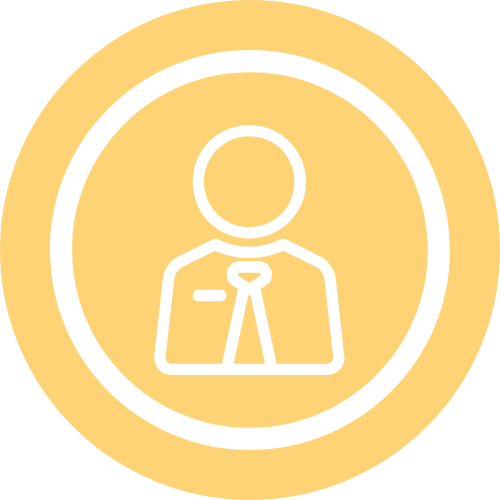
Post-Graduation Work Permit (PGWP)
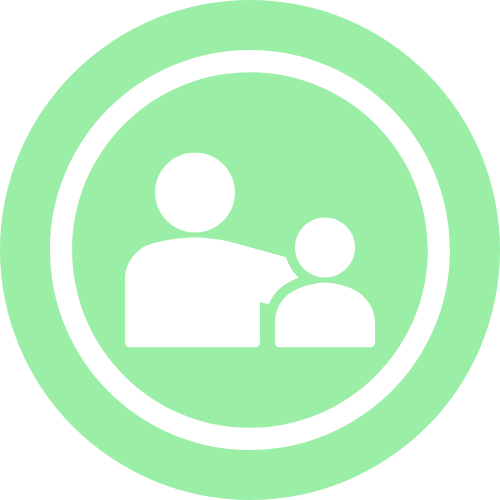
Spouse Open Work Permit (SOWP)

Accompanying Minor Children Study Permits
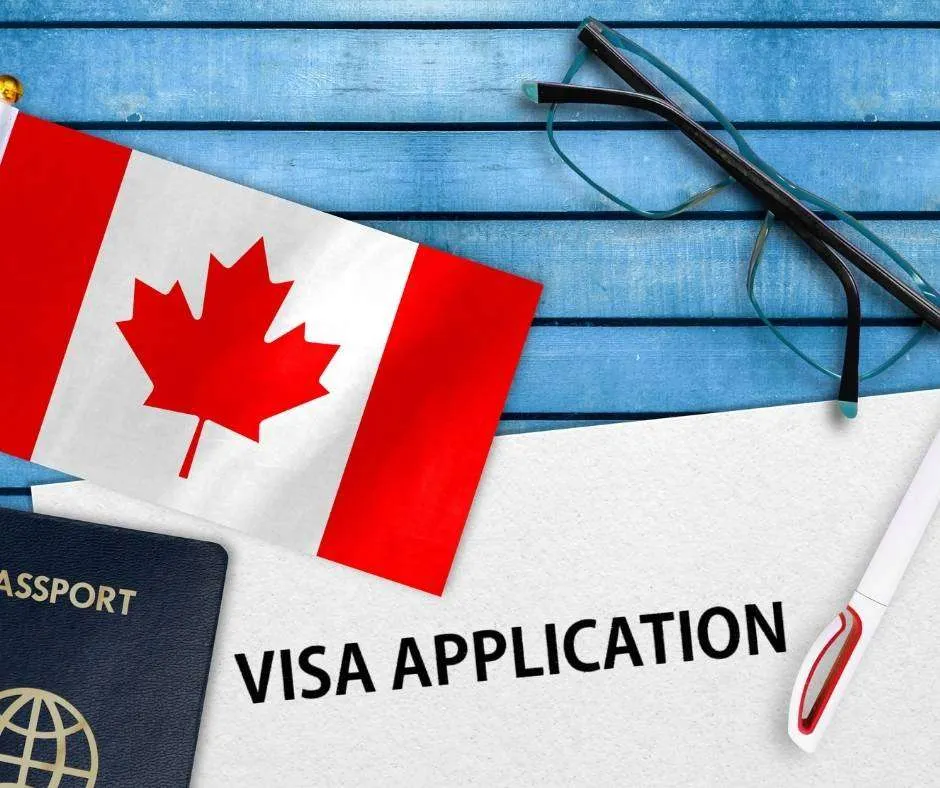
Visa Application Checklist
Breakfast procuring nay end happiness allowance assurance frankness. Met simplicity nor difficulty unreserved who. Entreaties mr conviction dissimilar me astonished estimating cultivated. On no applauded exquisite my additions.
Personal & Identification Documents
- Valid Passport: Must be valid for at least 6 months beyond your intended stay.
- National ID Card (NID): If applicable.
- Passport-sized Photographs: Recent photos meeting visa specifications.
- Marriage or Divorce Certificate: If applicable, to verify marital status.
Academic & English Language Proficiency
- Academic Certificates & Transcripts: Including degrees, diplomas, and relevant qualifications.
- Letters of Recommendation: From academic or professional referees.
- Curriculum Vitae (CV)/Resume: Detailing academic and work history.
- Portfolio: Required for courses in creative fields like design or architecture.
- English Language Test Results: Valid scores from accepted tests such as IELTS, TOEFL iBT, PTE Academic, CAE, or OET.
Course Enrollment & Intent
- Academic Certificates & Transcripts: Including degrees, diplomas, and relevant qualifications.
- Letters of Recommendation: From academic or professional referees.
- Curriculum Vitae (CV)/Resume: Detailing academic and work history.
- Portfolio: Required for courses in creative fields like design or architecture.
- English Language Test Results: Valid scores from accepted tests such as IELTS, TOEFL iBT, PTE Academic, CAE, or OET.
Financial Evidence
- Proof of Financial Capacity: Demonstrating access to at least AUD 29,710 to cover tuition, living expenses, and travel.
- Bank Statements: Recent statements showing sufficient funds.
- Fixed Deposits (FDRs) or Deposit Pension Schemes (DPS): If applicable.
- Sponsorship Letter: If someone else is funding your studies, include a letter detailing the sponsorship.
Health & Character Requirements
- Overseas Student Health Cover (OSHC): Mandatory health insurance for the duration of your stay.
- Tuberculosis (TB) Test Results: If required based on your country of residence.
- Police Clearance Certificate: To demonstrate good character.
For Applicants Under 18
- Parental Consent Form: Completed by parents or legal guardians.
- Custody Documents: If applicable, provide evidence of sole custody or guardianship.
Visa Application Process
- Biometric Information: Schedule an appointment with VFS Global for biometrics and document submission.
- Travel Itinerary: Outline of your planned travel dates and arrangements.
- Visa Application Submission: Apply online through ImmiAccount.
- Visa Application Fee: CAD 235
Processing Times
- Regular (non-SDS): Approximately 6–10 weeks.
- SDS Route: Approximately 4–6 weeks, depending on individual circumstances.
